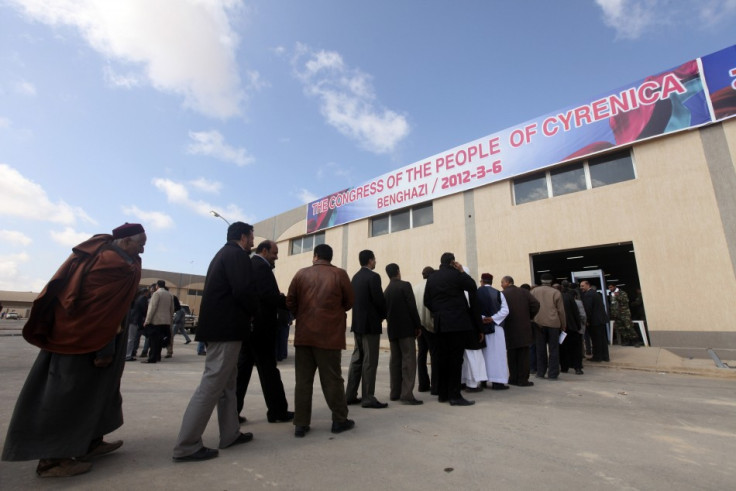Oil-Rich Eastern Libya Declares Autonomous Cyrenaica

Post-Gaddafi Libya looks set to be a divided one, as tribal leaders and militias continue to fight the National Transitional Council for control of the country.
Three thousand delegates from Libya's tribes and militia gathered in Benghazi, the stronghold of the revolution that toppled former leader Muammar Gaddafi, to attend the Congress of the People of Cyrenaica, as the region was previously known.
The conference declared oil-rich eastern Libya a semi-autonomous region in an attempt to stop what they described as decades of state-led discrimination from Tripoli.
The move seeks to revive the pre-Gaddafi division of Libya into three federations, in which the northwest of the country was known as Tripolitania, the southwest as Fezzan and the east as Cyrenaica, or Barqa in Arabic.
Pro-federalists want to create a council to administer the province's affairs and want the region to have its own parliament, police force, courts and capital in Benghazi, Libya's second city.
Mohammed Buisier, a Libyan-American who helped organise the congress, told Reuters that Cyrenaica would look after housing and education, while the central government would continue to be responsible for national security and defence.
"We believe in one Libya," he said, as he insisted that the group is not seeking to make a complete separation from the rest of the country but to make up for 40 years of negligence under the Gaddafi regime.
"If we keep this negligence towards the east, I cannot guarantee that Libya will be united in 25 years-time," he added.
The bulk of Libya's oil reserves are concentrated in the eastern part of the country, so the call for greater autonomy is viewed by many as an attempt to gain better control of the country's oil revenue.
Ahmed Zubair al-Senussi, a member of the interim ruling NTC, was elected by delegates at the conference to head Cyrenaica's governing council.
He denied the move is connected to the oil reserves, saying: "The oil is for all Libyan people."
The country's economy is largely dependent on hydrocarbons and dissension over how to organise the oil industry repeatedly occurs between the NTC and the rebels.
Mustafa Abdul-Jalil, head of the NTC, said the eastern initiative could "lead to danger" and blamed other Arab nations for encouraging the break up of Libya.
© Copyright IBTimes 2025. All rights reserved.





















